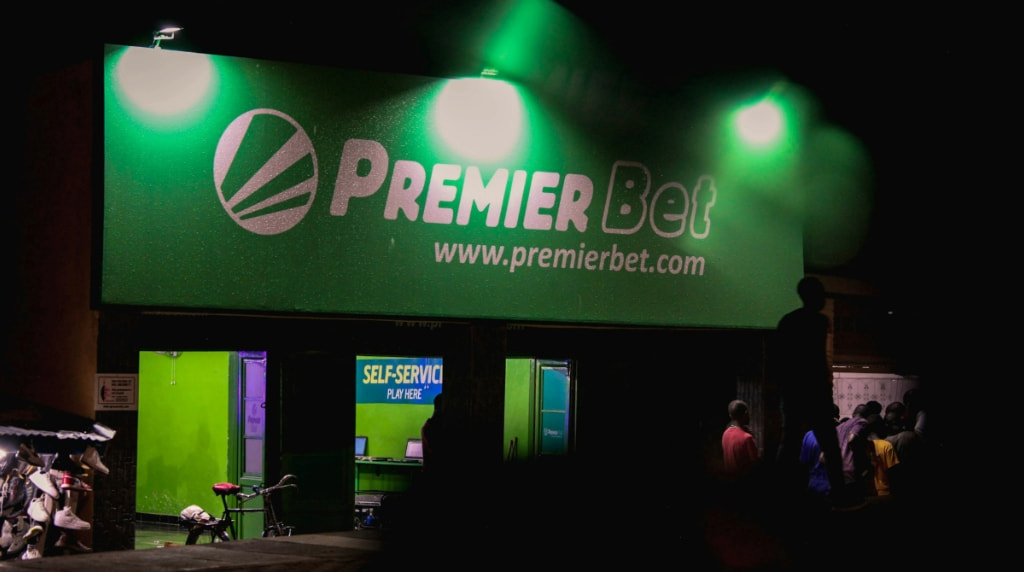Premier League Faces Shirt Sponsor Ban
Premier League clubs have together agreed to withdraw gambling sponsorship from the front of matchday shirts by the end of the 2025-26 season. The voluntary ban comes amidst pressure to curb gambling harms. However, some campaigners say that the move does not go far enough. Sleeve sponsorships and stadium advertising will not be affected.

This season’s front-of-shirt gambling sponsorships are believed to be worth £60 million to Premier League clubs.
©Tembela Bohle/Pexels
Valuable Sponsorships
Premier League clubs have announced that they will withdraw gambling sponsorship from the front of their matchday shirts. The top-tier league is the first UK sports league to make the commitment. Clubs have agreed to phase out betting and casino sponsorships from the front of shirts by the end of the 2025/26 season.
Over the course of the next three seasons, clubs will transition away from shirt-front gambling sponsorships. The deadline will allow clubs the time to honor their current deals and seek out replacement sponsorships, which are a vital stream of revenue. Gambling sponsorships are amongst the most lucrative in football. At present, eight Premier League clubs are sponsored by gambling firms with an estimated value of £60 million a year.
The voluntary measure comes after the sport has faced increasing pressure to reign in its ties with the gambling industry. It is hoped that through reducing the quantity of gambling advertising visible at Premier League matches, gambling harms can in turn be reduced. The Premier League has stated that it is working with other sports on creating a new code for responsible gambling sponsorship.
However, Premier League matches will not be entirely free of gambling advertising. After the deadline, clubs will still be permitted to feature gambling brands on shirt sleeves as well as on LED advertising boards around the pitch. While critics have praised the voluntary measure to stop betting sponsorships on the fronts of top-tier shirts, some say that the move does not go far enough.
Further Reforms Expected
The Premier League’s announcement comes after a consultation between the league, its clubs and the DCMS. The government is still carrying out a review of its gambling legislation, with a white paper outlining reforms expected to be published in the coming weeks. It is the most comprehensive review of the UK’s gambling laws since the introduction of the 2005 Gambling Act. Ministers are keen to bring gambling laws up to date with the digital age.
It is understood that many of the reforms had been agreed last summer. However, the white paper faced further delays when former Prime Minister Boris Johnson stepped down. Pressure is mounting for ministers to publish the review before campaigning for local elections begins on May 4th. Publishing the review during the pre-election period would breach purdah rules, meaning further delays for the white paper.
Secretary of State for Culture, Media and Sport, MP Lucy Frazer, has welcomed the Premier League’s decision. She explained that while most adults gamble safely, it must be acknowledged that footballers are role models who have a significant influence on young people. In a statement, Frazer said:
“We want to work with institutions like the Premier League to do the right thing for young fans. We will soon bring forward a gambling white paper to update protections for punters and ensure those who are at risk of gambling harm and addiction are protected.”
According to the Betting and Gaming Council, which represents the industry, rates of problem gambling in the UK are low by international standards. It claims that just 0.3% of the adult population struggle with problem gambling. However, a YouGov survey for GambleAware puts that figure much higher at 2.8%.
A Positive Step
Amongst those who have campaigned for tougher rules to combat gambling harms is former Conservative leader Iain Duncan Smith. The Vice Chair of the Gambling Related Harm APPG has described the UK’s gambling laws as ‘the most liberal in the world’, calling for urgent changes to consumer protections.
Many campaigners had called for an outright ban on all forms of gambling sponsorship and advertising in football. While it was always clear that a total ban was never likely, some argue that more could have been done to improve the impact of the new voluntary ban.
The Big Step has campaigned to end gambling’s promotional relationship with football since 2019. In a statement responding to the Premier League’s decision, it described moving logos to a different part of the kit and continuing to allow pitch-side advertising and league sponsorship as ‘totally incoherent’.
The campaign did concede that the voluntary ban is a huge step in the right direction. It argued that this progress has proved that its mission, led by people with lived experience of gambling harms, is the right course of action. The campaign was founded by head of education at charity Gambling with Lives, James Grimes. He stated:
“I love football but I can’t trust the leagues on this issue; the government must now step in and go further. It would be a PR disaster if, after three years of reviewing the Gambling Act, it did nothing else to restrict gambling advertising and sponsorship in the upcoming white paper.”



